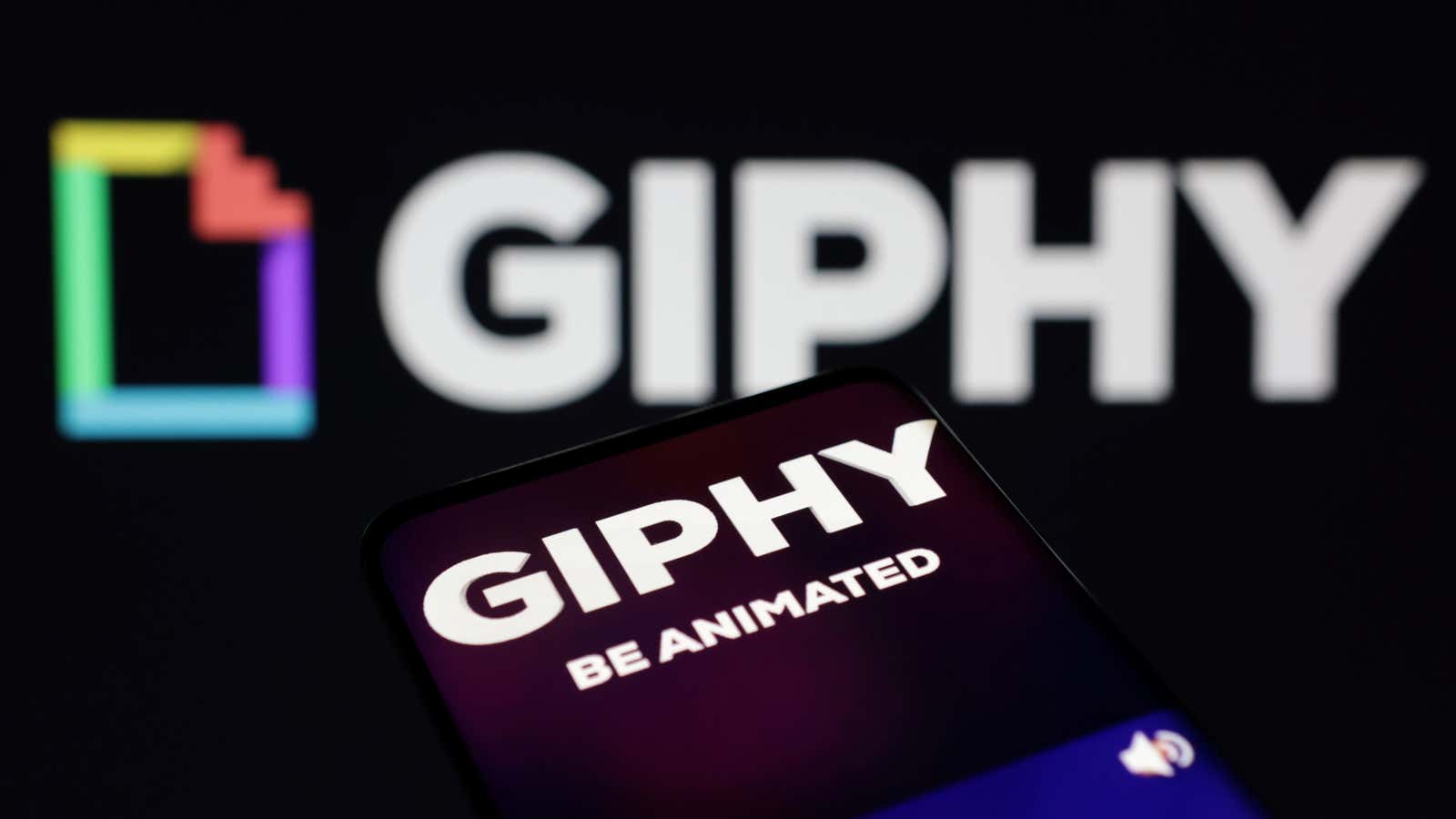Three years after Facebook parent company Meta bought Giphy for $315 million, it’s selling the GIF search engine to Shutterstock for just $53 million, a $262 million loss on the deal.
The culprit wasn’t corporate ineptitude, but the UK’s antitrust authority. The Competition and Markets Authority (CMA) ordered Meta to sell Giphy last October, claiming the merger gave Meta an unlawful advantage over competitors in the social media and digital advertising markets.
Shutterstock, the stock-image and photo library, announced the deal and sale price in a press release on May 23. Meta declined to comment on the sale, but in a statement in October, the company told Quartz that although it was disappointed by the CMA decision, it would work closely with the regulator in selling off Giphy.
Meta’s transatlantic antitrust battle
While the Meta-Giphy deal evaded scrutiny from the US Federal Trade Commission (FTC) and the US Department of Justice, each of which claimed antitrust authority in the US, the UK’s CMA took up the charge. The FTC recently tried to stop Meta from buying the virtual reality company Within, meant to contribute to its larger metaverse-building strategy, but the agency dropped its case in February after a federal judge found there wasn’t enough evidence that the deal would harm competition in the VR space.
Meta doesn’t have much wiggle room anymore when it wants to buy a company. Nearly a decade after its largest acquisitions—Instagram for $1 billion in 2012, Oculus for $2 billion in 2014, and WhatsApp for $19.3 billion in 2014—antitrust regulators are much more critical of Meta’s market dominance and willing to intervene. That applies to antitrust authorities outside of the US, too.
The trouble with regulating new markets
Benjamin Sirota, a former Justice Department antitrust prosecutor now at the law firm Kobre & Kim, told Quartz in 2021 that the decision to block Meta’s merger with Giphy showed a “low threshold for investigating and ultimately trying to block deals that have some sliver of a connection to the UK.”
But GIFs have quickly fallen out of favor with younger users, and the metaverse feels like last year’s hype cycle. Regulators may regret non-intervention a decade ago, but predicting the next new market is tough for Silicon Valley’s tech giants, let alone government officials.
